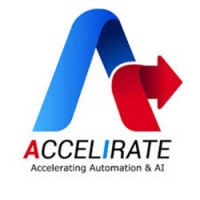How Agentic Automation Is Redefining RPA Workflows

Strong 8k brings an ultra-HD IPTV experience to your living room and your pocket.
The automation landscape is undergoing a major transformation. While Robotic Process Automation (RPA) has been a game-changer in automating repetitive, rule-based tasks, it’s now evolving into something far more intelligent and dynamic—thanks to the rise of Agentic Automation.
Agentic Automation introduces a new breed of software agents—AI-powered, autonomous, and goal-driven entities—that go beyond simple task execution. These agents are not just reactive, they’re proactive. They can make decisions, learn from outcomes, and adjust their course to achieve business goals. As a result, RPA workflows that were once rigid and limited to predefined rules are now becoming adaptive, intelligent, and highly scalable.
Let’s explore how Agentic Automation is redefining RPA workflows and reshaping the future of enterprise automation.
From Task Automation to Goal-Driven Agents
Traditional RPA thrives on structure. Bots are trained to follow predefined rules and scripts to complete tasks like data entry, invoice processing, or report generation. However, these bots struggle when processes become complex, unpredictable, or require cognitive abilities.
Enter Agentic Automation.
Instead of scripting step-by-step instructions, agentic systems operate based on intent or outcomes. These agents can:
- Understand high-level goals
- Plan multi-step actions dynamically
- Interact with multiple systems autonomously
- Adjust to real-time changes in data or system environments
This paradigm shift means businesses are no longer bound by rigid workflows. With agentic agents, automation becomes more like collaborating with a smart virtual assistant than managing a rule-following bot.
Key Features of Agentic Automation
1. Autonomy and Proactivity
Unlike traditional RPA bots that wait for triggers, agentic agents act on their own initiative. For example, an agentic RPA bot handling invoice reconciliation won’t just process data—it may detect anomalies, seek clarifications, or suggest follow-up actions without needing human input.
2. Context Awareness
Agentic agents understand the broader business context, allowing them to make decisions based on real-time conditions. For instance, if a delivery is delayed, the agent can autonomously update the order system, notify the customer, and trigger a refund workflow—without needing hardcoded steps.
3. Learning and Adaptability
With the integration of AI and machine learning, agentic systems improve over time. They learn from previous outcomes and modify their behavior to improve performance, reduce errors, and optimize workflows.
4. Multi-Objective Execution
These agents are capable of balancing multiple objectives at once, such as cost, speed, and compliance. They can intelligently prioritize tasks, reroute workflows, or escalate decisions—all without human oversight.
Real-World Impact on RPA Workflows
Let’s look at how Agentic Automation is transforming traditional RPA workflows across industries:
Customer Service Automation
In legacy systems, RPA bots would pull customer information from CRMs and respond with canned replies. Now, agentic agents can hold contextual conversations, analyze sentiment, access knowledge bases, and even propose upsell opportunities—all while learning from each interaction.
Banking and Financial Services
Traditional RPA bots help in loan processing by gathering documents and validating data. Agentic automation takes it a step further—evaluating credit risks in real time, dynamically adjusting approval workflows, and flagging anomalies without manual configuration.
Healthcare Workflow Automation
Instead of just extracting patient data from EMRs, agentic agents can proactively identify gaps in care, recommend follow-up procedures, and alert medical staff about patient conditions—adding value beyond task automation.
Benefits for Enterprises
Greater Agility – Agentic workflows adapt in real-time, reducing downtime and the need for manual intervention.
Higher ROI – More intelligent, outcome-focused automation leads to significant cost and time savings.
Enhanced Scalability – Agentic systems are designed to grow with the business, making them suitable for dynamic, enterprise-grade environments.
Improved Decision-Making – These systems provide data-driven insights, enabling businesses to make informed decisions faster.
Challenges and Considerations
While Agentic Automation holds immense promise, organizations must address certain challenges:
Complex Implementation: Building agentic systems requires a solid foundation in AI, ML, and cognitive technologies.
Governance and Control: With increased autonomy, governance frameworks need to ensure transparency, compliance, and security.
Workforce Readiness: Employees must adapt to working alongside intelligent agents and shift from task execution to oversight and strategic roles.
The Future of RPA Is Agentic
We’re at the cusp of a new era where automation isn't just about saving time—it's about unlocking intelligence within business processes. Agentic Automation adds a layer of cognitive capability to RPA, turning it from a rule-executor into a decision-maker.
Forward-thinking enterprises that embrace agentic technologies will gain a competitive edge by automating more complex processes, responding faster to change, and delivering greater value to customers.
As Agentic Automation continues to mature, it will become the backbone of intelligent enterprise operations—where automation isn't just smart, it's autonomous, proactive, and aligned with business outcomes.
Note: IndiBlogHub features both user-submitted and editorial content. We do not verify third-party contributions. Read our Disclaimer and Privacy Policyfor details.


